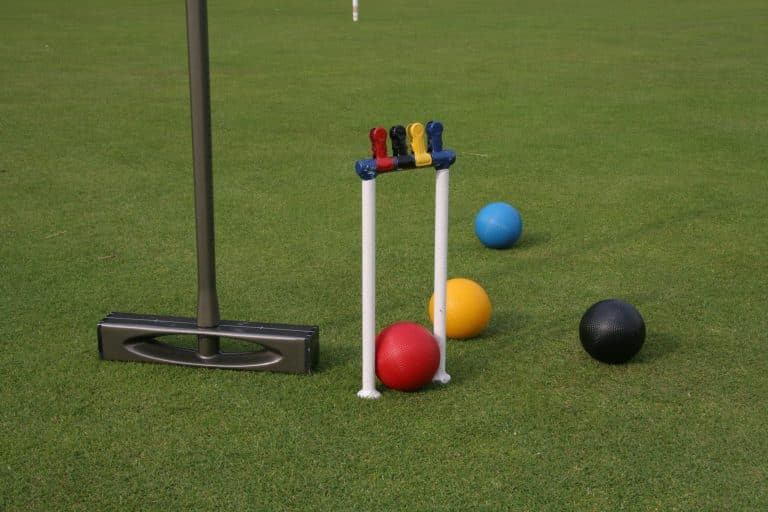Here’s a surprise: blogging can become a kind of high-order play. I rediscover this every time readers send me witty ripostes; I learn a lot from these comebacks too.
And that happened recently with a piece I wrote for Psychology Today about the emotional dividends of competitive play. To make my point, I used croquet as an example. Yes, croquet.
I had some help, however. In spiration for this unlikely little meditation came from an H.G. Wells story that I barely remembered, having read it when I was twelve. The Online Books Page obliged, magically, and delivered the full text of the 1937 morality tale that Wells called The Croquet Player. He set the story in an English rest-cure spa, and there his foppish main character, George Frobisher, a proper gentleman, held forth on the virtues of his chosen lawn game, croquet, comparing its effects with the thrills of hockey, gambling, and aviation.
spiration for this unlikely little meditation came from an H.G. Wells story that I barely remembered, having read it when I was twelve. The Online Books Page obliged, magically, and delivered the full text of the 1937 morality tale that Wells called The Croquet Player. He set the story in an English rest-cure spa, and there his foppish main character, George Frobisher, a proper gentleman, held forth on the virtues of his chosen lawn game, croquet, comparing its effects with the thrills of hockey, gambling, and aviation.
Through his other characters, Wells makes it clear he, himself, thought this was a stretch and that the gentle game was not so innocuous given the circumstances. Sinister fascist movements were brewing war in Europe, and millions like Frobisher had better toughen up. A fair point.
But here comes the play in blogging—the give-and-take. An old friend, an old mentor in fact, John O’Donnell, a cultural/intellectual historian, wrote to say that fussy old George had a point.
Before he had attended the University of Pennsylvania for graduate school, O’Donnell served a stretch in the U.S. Navy—much of it in Japan at the U.S. naval base. Though he never told me his rank or the nature of his deployment, I formed an idea after having once listened to him chat comfortably in Russian with a waiter at an Eastern European restaurant. A track star in college, he recruited other jocks to join a basketball troupe that played opponents at naval bases and naval air stations around the country.
And here I’ll let him pick up the story: “I was annoyed to hear one day that our practice session had been confined to half-court because the base commander, a captain, was reserving the other half of the gym for his badminton game.” Edged out by badminton—a game he regarded as a “sissified pseudo-sport.” But he writes, “Then I watched the action.” The captain was “an aficionado who actually had arranged to have other competitive players assigned to the base.” And the game itself “played at their level, was a savage, take-no-prisoners contest. Some days I’d actually stick around after my watches to spectate.”
So badminton turns out to be not so dandified and bogus after all. “I began correcting my macho misimpressions of contest, of serious play including non-physical games,” O’Donnell wrote.
I’d come to a similar conclusion about nine-wicket croquet, having spectated at many games at the bowling green across from my house. I’ve listened to their lingo that shows how they’ve mastered the sharp competition—references to baulks, double-taps, peels, roquets, and scatter shots—and I’ve overheard some friendly but insistent disputes. Another thing, even though a pizza joint delivers a stack of pies at the intermission, and although they keep a cooler handy and stock it with lager, these team players take the game and their individual performances seriously. O’Donnell, still an all-round athlete, draws a conclusion about the gravity of such competition: “If I take away one generalization from my sporting life, it’s that—at the primal level—you’re always playing against yourself.”
I count wordplay as one of the pleasures of post-blog exchanges, and here my correspondent supplied one so apt and playful that it became the title for this afterthought: “badminton may be savage, but croquet is wicket.”



